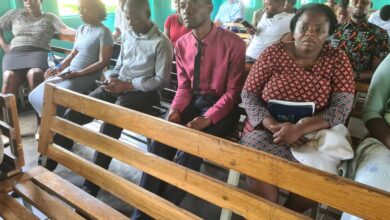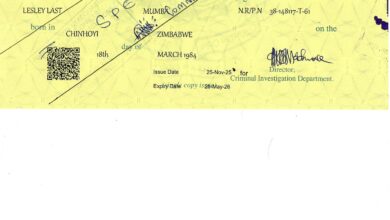Minister, Calls for Action to Turn Waste Into Wealth at Green Indaba 2025

Nqobizwe Thebe
Zimbabwe must turn climate challenges into opportunities by embracing circular economies and sustainable agriculture, Minister of Environment, Climate, and Wildlife Hon. Dr. Evelyn Ndlovu has said.
Speaking at the Green Indaba 2025, held at the Harare Exhibition Park on the sidelines of the Zimbabwe Agricultural Show, Dr. Ndlovu said the event was “more than a conference; it is a call to action.”
“We meet at a time when climate change, environmental degradation, and unsustainable agricultural practices threaten the very foundations of our livelihoods, ecosystems, and national development,” she said.
The Minister said climate change was no longer a distant threat but a daily reality for farmers and communities. “Rising temperatures, erratic rainfall, and prolonged droughts are no longer distant threats, they are realities affecting our farmers, communities, and economy. However, within these challenges lie opportunities to reimagine our systems and build resilience,” she said.
Dr. Ndlovu urged stakeholders to view agricultural and urban waste as a resource, not a liability.
“Agricultural waste is one such frontier. Improperly managed, it contributes to methane emissions, soil degradation, and water pollution. But when harnessed correctly, it becomes a resource; compost, biogas, organic fertilizer, and even animal feed. This is the essence of circularity: turning waste into wealth,” she said.
She commended the Pfumvudza/Intwasa programme for boosting yields and soil health and praised the First Lady, Amai Dr. Auxilia Mnangagwa, for championing the Zero Waste Movement. “Her leadership has galvanized communities to embrace cleanliness, disease prevention, and resource recovery,” Dr. Ndlovu said.
The Minister said achieving Zimbabwe’s target of reducing greenhouse gas emissions by 40% per capita by 2035 required joint action across society.
“Climate action is not the responsibility of government alone. It demands collaboration across ministries, civil society, academia, the private sector, and international partners,” she said.
Dr. Ndlovu called on farmers to adopt sustainable practices, the private sector to see waste as a business opportunity, and young people to lead green innovation.
“The choices we make today will shape the legacy we leave for future generations. Let us move beyond conversation to implementation,” she added.





